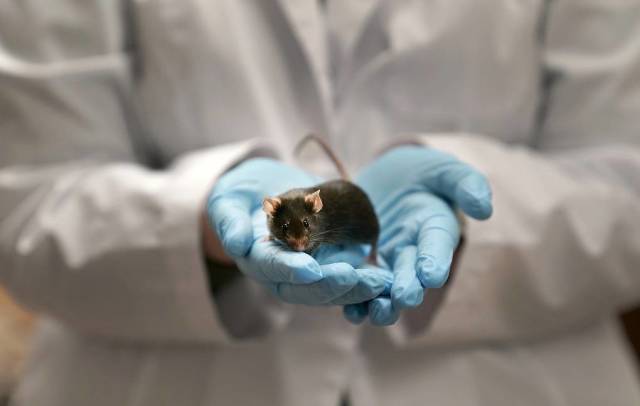An analog of a signaling molecule that stimulates bone growth in animals and humans has successfully passed the first tests in microgravity
TASS, September 18. For the first time, scientists from the USA have successfully tested the work of an experimental drug based on a synthetic analog of the NELL-1 protein in experiments on mice on board the ISS. This substance stimulates the restoration of bone tissue, which protects against weakening during a long life in weightlessness. This was announced on Monday by the press service of the University of California at Los Angeles (UCLA). The work was published on Monday in the journal npj Microgravity.
"The results of our experiments are of great importance for future space exploration, in particular missions whose participants will live for a long time in microgravity. If we get the same effect in human experiments, then the BP-NELL-PEG drug we have created can become a promising tool for protecting muscles and bones from weakening, especially in conditions when training is impossible due to injuries or other hindering factors," said the lead author of the work, UCLA Professor Chia Su, whose the words are quoted by the press service of the university.
One of the biggest obstacles to a long human life in space is considered to be the weakening of bones due to the gradual demineralization of bone tissue. It is possible to fight this process with the help of exercises that strengthen the muscles and skeleton, but they are not always possible to perform them during long flights into space.
Professor Chia Su and her colleagues have developed and tested for the first time a tool that significantly slows down the weakening of bones during prolonged life in microgravity. The drug they created is an analog of the human protein NELL-1, one of the signaling molecules that control the process of bone tissue growth.
A few years ago, biologists discovered that injections of NELL-1 in combination with another signaling protein, BMP-2, significantly accelerate the regeneration of bone tissue in rodents. Based on these results, the authors of the work created a long-acting drug based on NELL-1, polyethylene glycol and biphosphonates (BP-NELL-PEG), capable of selectively penetrating bone tissue and stimulating its growth.
Protection of bones from the effects of weightlessness
Scientists tested the effect of BP-NELL-PEG on 40 mice that spent a total of nine weeks on board the ISS. Half of the animals received regular injections of the drug, while others were part of the control group. After the mice returned to Earth, the scientists measured the bone density in their thighs, shins and lower back and found that protein injections significantly improved the condition of the rodents' bones.
So, for nine weeks of life in space, bone density in mice from the control group fell by 10-15%. At the same time, the density of most animal bone samples from the experimental group either decreased slightly or increased by 3-10%.
The researchers hope that BP-NELL-PEG will act in a similar way on the bones of the ISS crew members, as well as participants in future long-term expeditions to the Moon, Mars and other celestial bodies. In addition, scientists suggest that the drug can be used to treat osteoporosis and other bone diseases.

